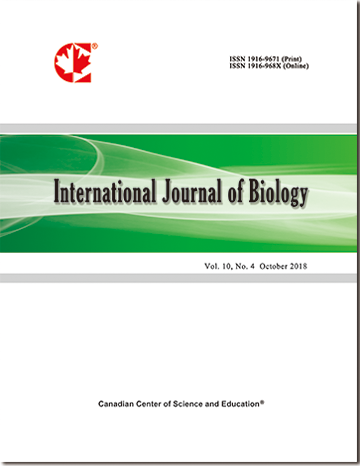Effects of Delayed First Feeding on Larval Growth and Survival of Yesso Scallop (Patinopecten yessoensis)
- Zhongqiang Cai
- Xiujun Sun
- Aiguo Yang
Abstract
The time of first feeding is an important factor for establishing successful initial feeding in molluscan hatcheries. The effects of delayed first feeding on larval growth and survival in the larvae of Yesso Scallop Patinopecten yessoensis were investigated in this study. Groups of larvae were fed at early stage of D-shaped larvae or delayed for 24, 48, 72, 96, 120 and 144 h. When first feeding was delayed for less than 72 h, the P. yessoensis larvae grew as rapidly as those non-starved larvae. When delayed first feeding for more than 72 h, the growth rates of larvae were significantly reduced (less than 2 µm day-1), half or less than those of the non-starved group. The survival rates decreased sharply with the prolonged starvation period and the extremely low survival rates were observed in the groups that were delayed first feeding for more than 72 h. The results indicate that the prolonged starvation had a deleterious impact on the larval growth and survival when delayed first feeding for 96 h or more. To avoid mass mortality and obtain adequate growth and survival, food availability within 72 h after early D-shaped larvae is critical important for the successful initial feeding in commercial culture of this species.
- Full Text:
 PDF
PDF
- DOI:10.5539/ijb.v6n4p37
Index
- ACNP
- AGRICOLA
- BASE (Bielefeld Academic Search Engine)
- CAB Abstracts
- CiteFactor
- CNKI Scholar
- CrossRef
- DTU Library
- Elektronische Zeitschriftenbibliothek (EZB)
- Excellence in Research for Australia (ERA)
- Google Scholar
- Infotrieve
- LIVIVO (ZB MED)
- LOCKSS
- Max Planck Institutes
- MIAR
- PKP Open Archives Harvester
- Qualis/CAPES
- ResearchGate
- ROAD
- SafetyLit
- SHERPA/RoMEO
- Technische Informationsbibliothek (TIB)
- Universe Digital Library
- WorldCat
Contact
- Ryan JonesEditorial Assistant
- ijb@ccsenet.org
